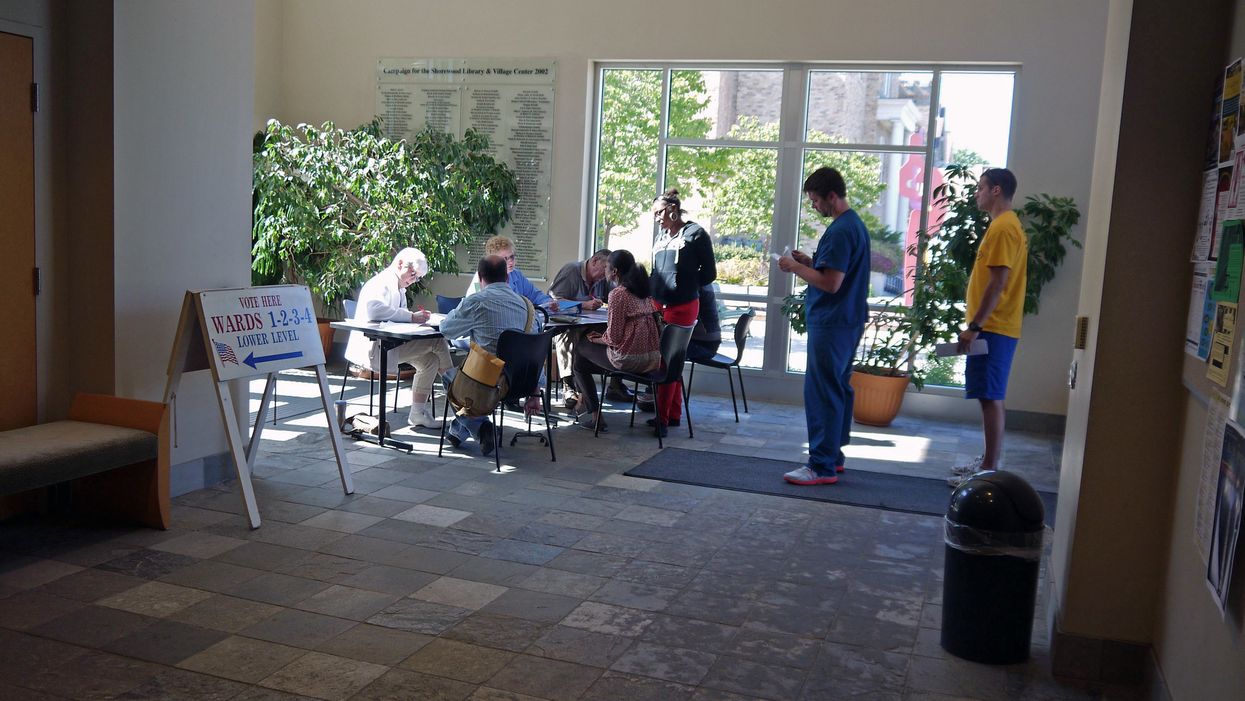Civil rights advocates and Democratic operatives are vowing to register more new voters in Wisconsin than the 200,000 or more who are set to be dropped from the rolls under a judge's order last week.
How well that effort succeeds will say a lot about the ability of grassroots organizers to get more people to the polls in 2020 in the face of government actions that would normally tamp down turnout. The outcome could also prove crucial in the presidential race, because even though Wisconsin was part of the "blue wall" that Hillary Clinton was counting on in 2016, in the end Donald Trump secured its 10 electoral votes by a margin of fewer than 23,000 ballots.
This fall letters were sent to 234,000 registered voters suspected of moving out of state, giving them 30 days to respond or else find themselves dropped from the rolls — but not before 2021. The conservative Wisconsin Institute for Law & Liberty then sued, arguing that under state law such people should be removed from the voter lists before the 2020 election.
"I don't want to see anybody deactivated, but I don't write the legislation," Judge Paul Malloy of the circuit court in the Milwaukee suburb of Ozaukee County said in his ruling. "If somebody in one of these close elections were to tie, and some voters voted that shouldn't have been in that district because their registration wasn't correct, you really can't undo that," Malloy said.
The Wisconsin Elections Commission, the panel of three members from each party that runs voting in the state, signaled it would appeal on the grounds that cleaning up the rolls before the April primary would be confusing to voters and logistically infeasable.
But critics of the court's decision said they would not wait. "Now our job is to organize harder than they can suppress," Ben Wikler, chairman of the state Democratic Party, tweeted Saturday.
He said a main thrust of that effort would be a sign-up drive — targeting the people who were purged as well as new voters — culminating on Election Day next November, because Wisconsin is among the 21 states where people can register on the same day they go into the voting booth.
The roster of people who will potentially be removed amounts to 6 percent of the state's 3.3 million registered voters. The Milwaukee Journal Sentinel analyzed the list and found about 55 percent of the addresseswere in municipalities Clinton carried in the 2016 election. The highest concentrations were in the two largest cities, solidly Democratic Milwaukee and Madison, and other college towns where the electorate skews left.
"Why does the right wing go to such extreme lengths, and do so much, to eliminate voters, make it difficult to vote, tamper with the electoral infrastructure? Exactly what do some on the right fear? If you can't win elections fairly-maybe you need to change your philosophy/ideas," tweeted the attorney general for most of the Obama administration, Eric Holder, who now runs a group focused on voting rights and ending partisan gerrymandering. He also referred to the voter purge as an "expected unfairness."
Gov. Tony Evers, a Democrat elected by fewer than 30,000 votes in 2018, tweeted that "this move pushed by Republicans to remove 200,000 Wisconsinites from the voter rolls is just another attempt at overriding the will of the people and stifling the democratic process."




















Trump & Hegseth gave Mark Kelly a huge 2028 gift